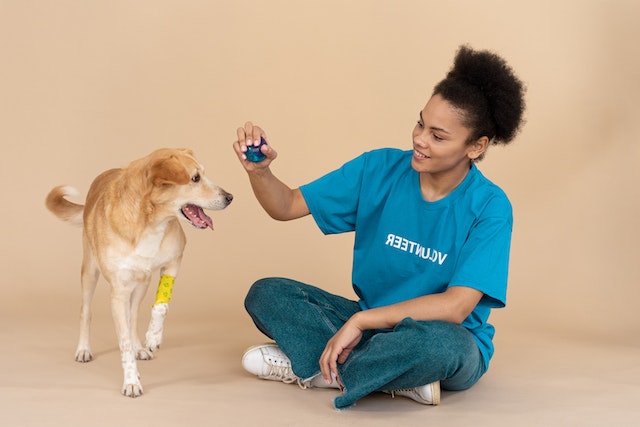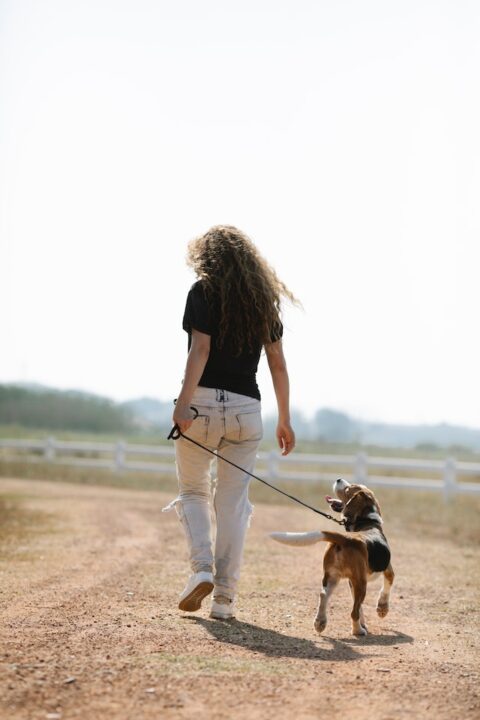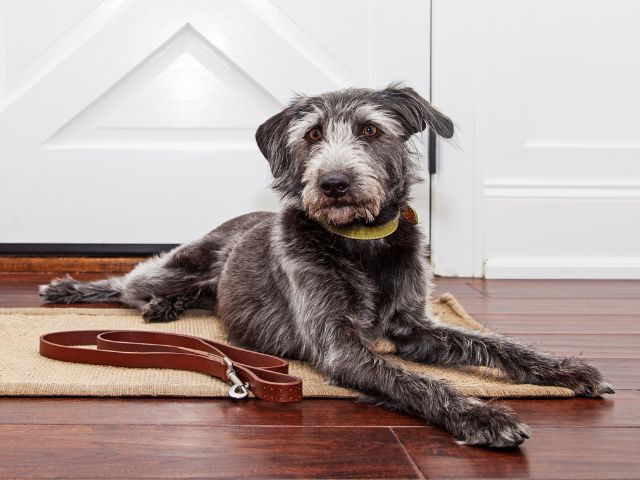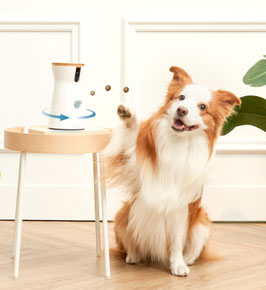If you’re navigating the complex terrain of divorce and you own a dog, deciding who gets custody of your furry friend can be an emotionally charged issue.
This comprehensive guide aims to provide Australian dog owners with crucial information on pet custody during divorces.
We’ll cover legal perspectives, different types of custody arrangements, and emotional considerations, among other aspects. Read on to learn how to best approach this sensitive subject.

Introduction
Divorce is a challenging life event, fraught with emotional, financial, and sometimes, legal complexities. Pets, particularly dogs, often occupy a central place in our homes and hearts.
They become a part of our family, and when a marriage ends, deciding where they will live can become a significant point of contention.
Why Pet Custody Matters in a Divorce
Pet custody is a crucial issue because pets are often considered family members. Unlike other assets that can be easily divided or sold, pets have emotional and social needs that need to be met.
The well-being of the dog is a priority, and an appropriate custodial arrangement ensures that your pet will continue to live a healthy and happy life.
The Emotional Importance of Pets
Pets provide emotional support and companionship. During a divorce, maintaining some level of normalcy can be comforting.
Many people find the presence of a pet to be emotionally stabilizing, which is why the issue of pet custody can become particularly sensitive during this difficult period.

Legal Landscape of Pet Custody in Australia
In Australia, the laws surrounding pet custody can be a bit complex, given that pets are often legally considered property.
However, there have been recent shifts in the way pets are viewed within the legal system, and understanding this landscape is crucial for anyone going through a divorce.
How Australian Law Treats Pets in Divorces
Under Australian law, pets are generally considered property, much like a car or a house. However, this classification is evolving.
Some courts now consider additional factors, like who the primary caregiver is or what arrangement would be in the pet’s best interest.
Nevertheless, the ‘property’ classification still holds significant sway in most cases.
State-Specific Regulations
While federal laws apply to all of Australia, individual states and territories may have their own regulations and guidelines related to pet custody.
For instance, laws in New South Wales may differ slightly from those in Victoria or Queensland. This is exactly what happens when it comes to breeding laws in Australia too.
As such, it’s advisable to consult local legal resources or an attorney well-versed in your state’s specific regulations.
Recent Changes in Pet Custody Laws
In recent years, there’s been growing recognition of the emotional value pets hold. Some Australian courts are starting to view pets less as property and more as sentient beings with needs and preferences.
Though not universal, these changes signify a gradual shift in how pet custody is determined in divorce cases.

Types of Pet Custody Arrangements
Once you understand the legal landscape, it’s essential to explore the different types of pet custody arrangements available.
The kind of arrangement you choose can impact not just you and your ex-partner, but also your beloved dog.
Joint Custody
Joint custody is a shared arrangement where both you and your ex-partner retain legal ownership of the pet. In this scenario, the pet divides its time between both households.
While this allows the pet to maintain a relationship with both parties, it also necessitates a lot of coordination and can be logistically challenging.
Sole Custody
Sole custody implies that only one partner will take on the legal and physical ownership of the pet.
This is often appropriate if one partner has been the primary caregiver or if the other partner is unable or unwilling to provide adequate care for the animal.
Visitation Rights
In some arrangements, one partner may have sole custody, but the other has visitation rights.
This can be a suitable compromise if one party is better equipped to provide daily care but still wants the other to have a relationship with the pet.
Shared Ownership
Shared ownership is slightly different from joint custody. In this arrangement, both parties legally own the pet but may not share time with it equally.
One partner may keep the pet most of the time, while the other has occasional or periodic custody.

Factors Courts Consider for Pet Custody
When going through the legal process, it’s crucial to understand the factors that courts may consider when awarding pet custody. Knowing these can help you prepare your case more effectively.
The Best Interests of the Pet
While the “best interests” criterion is generally used for child custody, some Australian courts are increasingly applying this to pets as well.
Factors like the pet’s age, health, and attachment to each partner may be considered.
Primary Caregiver
Courts often look at who has been the primary caregiver to the pet. This includes who feeds the pet, takes it to the vet, and spends the most time with it.
Being able to demonstrate that you have been the primary caregiver can strengthen your case for custody.
Living Conditions
The living conditions that each partner can provide post-divorce may also be considered. Elements like space, safety, and proximity to parks or veterinary clinics can impact the court’s decision.
Financial Stability
Providing for a pet’s needs—food, healthcare, grooming, etc.—requires financial stability. Courts may assess each partner’s ability to financially support the pet when determining custody.

Preparing for the Legal Process
Preparing for the legal aspects of pet custody is an essential step. Having all your documents and plans in order can greatly assist your case.
Gathering Documents
Documentation can serve as concrete evidence in court. These documents could be veterinary records, bills, or even photos that establish your relationship and responsibilities towards your pet.
Vet Records
Veterinary records can show who has been responsible for the pet’s medical care, which can be a significant factor in custody decisions.
Purchase or Adoption Papers
If you were the one who originally purchased or adopted the pet, those papers could serve as essential evidence for your claim to custody.
Consulting with an Attorney
An attorney who specializes in family or pet law can offer invaluable advice tailored to your specific situation.
They can guide you through the legal process and help you prepare your case, from gathering evidence to negotiating with your ex-partner.
Creating a Pet Custody Agreement
A written pet custody agreement can simplify the court process. This agreement should outline the terms of custody, financial responsibilities, and visitation rights if applicable.
It can serve as a reference point for both parties and help resolve future disputes.

Common Challenges and How to Overcome Them
Even with legal guidelines and personal intentions in place, you may still face challenges. Let’s look at some common issues and how to address them.
Disagreements on Pet Custody
When both parties are emotionally attached to the pet, disagreements can escalate.
Effective communication and compromise are key. If all else fails, a mediator or legal intervention may be necessary.
Relocation and Long-Distance Ownership
When one partner moves to a different city or state, the logistics of shared custody become complicated.
In such cases, reassessing the custody arrangement may be necessary to accommodate the pet’s best interests and logistical realities.
Changes in Life Circumstances
Life circumstances such as job changes, new relationships, or health issues can affect pet custody arrangements.
A well-drafted custody agreement can include clauses that account for these changes, reducing future conflicts.

Alternative Dispute Resolution Options
Going to court is not the only way to resolve pet custody issues. Alternative dispute resolution methods can be quicker, less expensive, and less adversarial.
Mediation
Mediation involves a neutral third party facilitating a discussion between you and your ex-partner to reach a mutually agreeable solution.
It can be an effective way to address pet custody without the emotional and financial toll of a court battle.
Collaborative Divorce
In a collaborative divorce, both parties and their attorneys agree to work together to resolve issues without going to court.
This method allows for more flexible, creative solutions and can be less stressful for all involved, including the pet.
Financial Aspects of Pet Custody
The financial responsibilities that come with pet ownership are often overlooked but are crucial in any custody arrangement.
Costs Involved in Pet Custody Cases
Legal fees, mediation costs, and even costs for the pet’s transitional care can add up. Be prepared to address these in your custody agreement to avoid unexpected financial burdens.
Financial Responsibility for Pet Care
Ownership entails various costs, from food and grooming to medical care. A comprehensive custody agreement should outline how these financial responsibilities are divided between parties.

Emotional Considerations and Support
The emotional toll of divorce and pet custody battles can be significant. Recognizing this and seeking support is crucial for your well-being.
Coping with Emotional Stress
Divorce and custody battles are stressful events. It’s okay to seek psychological support through therapy or counselling. Your emotional well-being is essential for your pet’s well-being, too.
Support Groups and Communities
There are numerous online forums, social media groups, and community organizations that offer emotional support and advice for people going through divorce and pet custody battles.
Don’t hesitate to reach out; you’re not alone.
Conclusion
This guide has covered various aspects of pet custody in divorces, aimed at helping Australian dog owners navigate this challenging terrain.
While the legal process can be complex and emotionally draining, being well-informed and prepared can make a significant difference in the outcome for both you and your pet.
Key Takeaways
Understanding the legal landscape, preparing thoroughly, and considering both financial and emotional aspects are critical to a favourable pet custody outcome.
Remember, the ultimate goal is the well-being of your pet.
Final Thoughts for Dog Owners Going Through a Divorce
Divorce is a difficult process, and the question of pet custody adds an additional layer of complexity.
However, with the right information and support, it’s possible to navigate this challenge in a way that serves the best interests of your beloved dog.

Frequently Asked Questions
Here are some FAQs that address common concerns and queries regarding pet custody in divorce cases.
How Can I Prove I’m the Primary Caregiver?
Documentation like vet bills, photographs, and even witness testimonies can help prove that you have been the primary caregiver to the pet.
What If My Ex-Partner and I Can’t Agree on Custody?
If mutual agreement proves impossible, you may have to resolve the matter in court or through mediation. In such cases, legal advice is invaluable.
Is a Pet Prenuptial Agreement Valid?
While not commonplace, pet prenuptial agreements are gaining recognition in Australia. Such an agreement can simplify the custody process.











